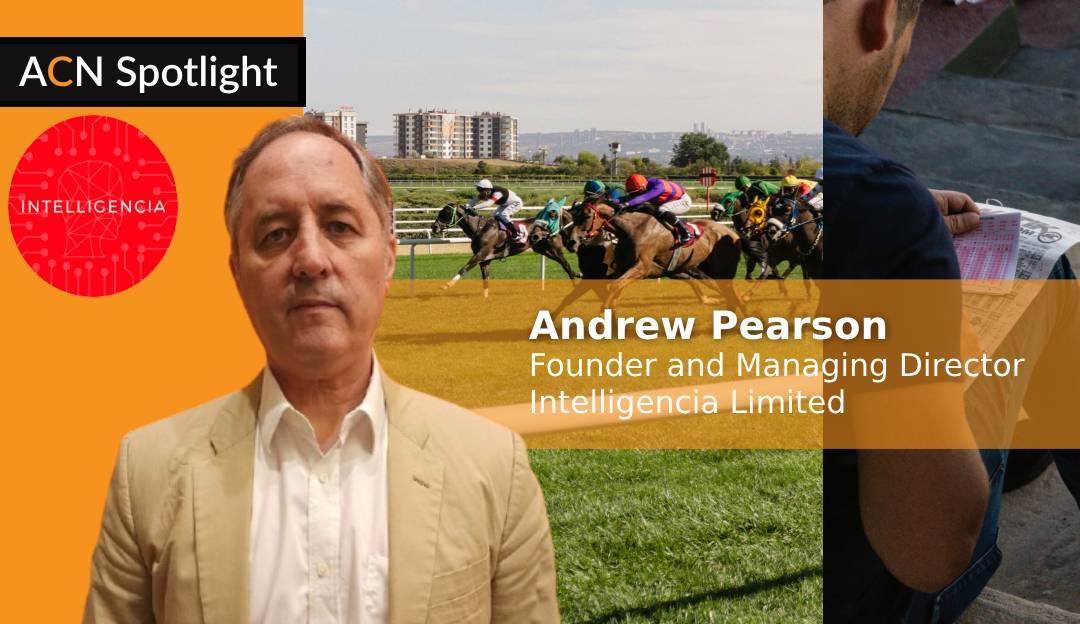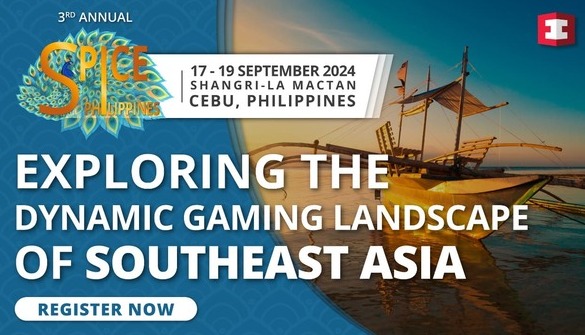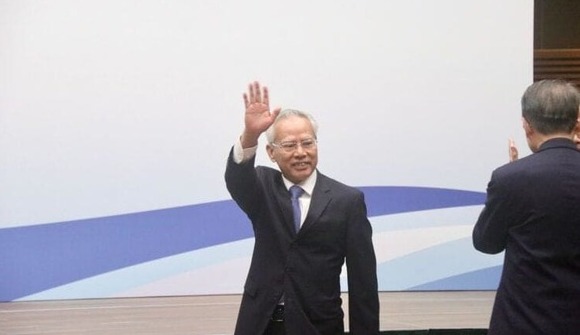
Betting Trends Across Asia: Insights from Intelligencia Limited Founder Andrew Pearson
During SPiCE Philippines 2024 held in Cebu, Andrew Pearson talked about the impact of AI on the casino and gaming industry.
In a rapidly evolving landscape, understanding the unique sports betting preferences across Asia can unlock lucrative opportunities for businesses.
In an exclusive interview with Asia Casino News (ACN) during SPiCE Philippines 2024 held at Shangri-La Mactan Resort in Cebu, Intelligencia Limited’s founder and managing director Andrew Pearson shared insights on how local interests shape betting trends, emphasizing the cultural significance of sports like basketball in the Philippines and football in China.
When it comes to sports betting trends in Asia, Pearson believes it pays off to know the unique preferences of various countries in the region. According to Pearson, understanding these preferences is crucial for anyone involved in the betting industry. The veteran speaker has had experience implementing artificial intelligence (AI), marketing automation, and analytics projects at some of the largest casinos and sports books in the world.
“Filipinos love basketball, so they love to bet on the NBA,” Pearson told ACN. He emphasized that basketball has become a significant part of Filipino culture, driving interest in American basketball leagues. I even saw a women’s basketball game on the TV in the Philippines and it was a local game so the gender barrier is even being broken.
In contrast, Pearson pointed out that football reigns supreme in mainland China. While basketball does have its fans, the passion for football dominates the betting landscape. The Hong Kong Jockey club takes bets on horse racing and football, but nothing else. In contrast, Filipino sports book must take basketball bets.
Singaporeans have a different affinity, with a particular love for Formula 1 racing. “For some reason, they love F1, so they bet on football and F1,” Pearson explained, showcasing the diverse interests that characterize the betting habits in this city-state.
Pearson also issued a caution regarding Malaysia, where match-fixing has been a concern. “They like to match fix, so be careful if you’re dealing with Malaysia,” he advised, underlining the importance of vigilance in that market.
Turning to Australia, Pearson remarked on the broad spectrum of sports that attract bettors. “The Aussies love everything,” he said, suggesting a vibrant, varied, and sophisticated betting culture. The sportsbooks down under are allowed to cut off bettors, which speaks of just how sophisticated some of them have become. There’s even analytics being used to catch “confederates”, i.e., people who have been expelled from betting site using friends or family to bet for them. Betting behavior can be like a fingerprint so this is possible.
Interestingly, Pearson shared insights from a recent business venture in the Middle East, where he found a surprising enthusiasm for Champions League football. “We were very surprised that they really loved Champions League football,” he stated, emphasizing the potential for diverse betting opportunities across different regions.
As the industry grapples with diverse markets, Pearson’s advice highlights the ultimate importance of tailored strategies for success. For businesses looking to enter these markets, understanding local interests can lead to unexpected and rewarding opportunities.
ON AI AND THE CASINO INDUSTRY. Pearson was tapped as a resource person for the talk at SPiCE Philippines which discussed generative AI use cases for the casino and sports betting industry in Southeast Asia.
The veteran speaker addressed the implications of AI on the casino and gaming industry, particularly concerning the workforce. His insights reveal a mixed landscape of challenges and opportunities as AI becomes more prevalent.
Pearson acknowledged that casino workers might feel some threat from the increasing use of AI. “They should probably feel a little threatened,” he admitted. However, he also emphasized the positive aspects of AI technology. “What AI is doing is it’s removing much of the grunt work that humans don’t like to do. Laziness and boredom can reduce creeps in with monotonous work, which can compromise productivity,” he explained. By automating tedious tasks, AI allows humans to focus on more creative and enjoyable aspects of their jobs, the higher order ones.
He illustrated his point with an example from Adobe’s software, which can analyze thousands of images and categorize them efficiently. “Generative AI can go through and really give you exact descriptions of what’s in that picture,” he noted. This capability extends to video as well, freeing up human workers from monotonous tasks.
“Adobe has this feature where it’ll look at a thousand images that you have and it’ll look at every single image and say, ‘This is a little girl, this is a beach, this is a blue sky.’ Humans could do that too but they don’t like doing that. And the reality is by slide 9,999, they’re probably missing a lot of the details in the shots.”
Despite the potential job displacement, Pearson stressed that opportunities will still exist for workers in the industry. He likened the situation to the evolution of typing skills. “When we started typing, we don’t have typists anymore, but they’re doing something else,” he said, suggesting that workers can adapt to new roles as AI takes over repetitive tasks.
For companies considering integrating AI into their operations, Pearson offered cautionary advice. “Be careful when you start talking to software companies,” he warned. He urged businesses to scrutinize the products offered and to ensure they understand the capabilities of the AI models they are considering.
“Make sure you look under the hood and see exactly what these models are doing,” he advised. “Historically, 60% of AI initiatives end in failure so it’s important to be clear about the objectives. There’s an explosion of companies calling themselves AI companies, many have been funded by VC and won’t be here in 3 – 5 years so make sure you’re working with reputable companies and their tools aren’t just front ends tapping into ChatGPT, Perplexity, or some text-to-image tool.”
Read related article: 2024 SPiCE Philippines Eventus Awards winners revealed
Other Interesting Articles
 Casino Gaming Supplier FBM Announces $10 Million Investment in New Software House in Manila
Casino Gaming Supplier FBM Announces $10 Million Investment in New Software House in ManilaSep 27, 2024











